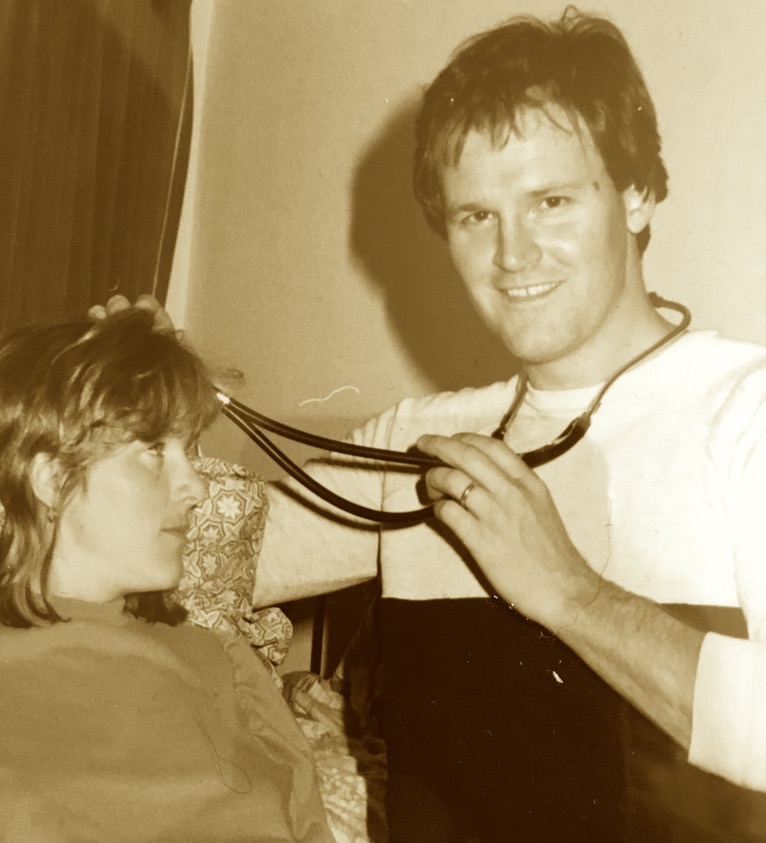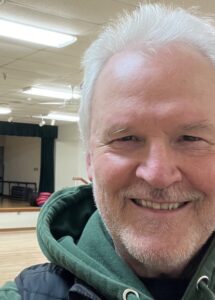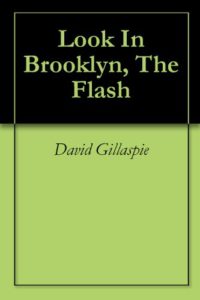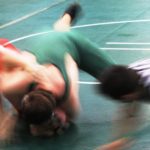
Medical advice is wasted on hypochondriacs. The problems they bring to an appointment change by the end.
“It hurts when I do this,” turns into, “It hurts when I don’t do that. But now it’s something else.” Sound stressful? It is.
It’s always something else. How do I know? Please continue.
First off, I feel your pain. Really, I do, and here’s why:
I’ve got a good tally of broken bones that didn’t involve car crashes, beginning a year before kindergarten with Miss Spooner at Roosevelt Grade School in North Bend, Oregon.
A game called Swinging Statue is played with a big kid holding onto to smaller kids, then swinging them in a circle and releasing them. The little kid has to freeze in place where they land.
I landed on a sidewalk curb and froze in pain with a broken collarbone.
Have you broken bones? Man, it’s a weird sensation at first. ‘What happened’ is the first question, just before going into shock.
I didn’t go into shock in fourth grade after climbing way up a tree, grabbing a rotten branch stump, and falling quite a ways onto a stack of construction rubble. If I was in shock, I don’t remember. What I do remember is waking up in the local hospital.
Have you seen videos of people going over the front of their bike handle bars? It’s funny every time, except the time I went over, launched over, and landed on my head and shoulder. The first thing I did was jump up and get my bike partner’s leg untwisted from the front forks.
Then I went into shock with a broken collarbone. I went on the mend, then just before I was set to get out of the brace, I took a dive running in the woods and broke it again.
Good medical advice would have been to stop being awkward and clumsy, but I was a grade school kid growing into a changing body. Sound familiar?
Teenage Medical Advice
As I aged I got better injuries. I got speered by a helmet in football practice, hit my upper arm and felt like it bounced off the bone. A Popeye-like muscle popped up on the outside and I couldn’t straighten my arm. So I taped a soccer shin guard over the bump and kept going. An X-ray showed nothing broken, it just looked broken.
A non-broken bone that felt broken didn’t end my sophomore season, but a separated shoulder did. It happened on a Wednesday, I hid it until game day Friday, then had the coaches wrap it with six rolls of tape and tie my wrist with a piece of rope connected to my shoulder pads so my arm wouldn’t fall off.
That Friday was the most important football game I ever played, my first varsity start, and my older brother was an all-star on the same team. I wasn’t going to miss it, but I missed the rest of the games that year.
Sitting out gave me time to think of my sports future. Safe medical advice would have been to stay away from sports, that I was fragile. And it made sense, except that I had something to prove, namely that I wasn’t fragile. So I skipped basketball season and joined the wrestling team to prove to myself I wasn’t a delicate flower.
Maybe I was proving it to more than myself, since I had an all-star older brother, a rising star younger brother, and dad with a shelf of football and basketball trophies along with a sock drawer that held a Silver Star and Purple Heart from his Marine days in Korea.
No way I was going to be the gentle child. Luckily I had a mentor in wrestling named Robin Richards. He was a local phenom with multiple National Championship plaques, Outstanding Wrester awards, a Gorriaran Award. He’d just won the Triple Crown in Oregon, and placed second in the Jr. World Greco Championship in Japan. By his senior year, and my sophomore, he had traveled the world and kicked ass.
More Than Medical Words
My pathetic freshman year of college wrestling ended with another shoulder injury. From then on things tapered off.
Since everything isn’t always about me I’ll hold back on the time between age 19 and 59, because I got lit up from virus neck cancer, HPV 16 neck cancer, at 60.
Cancer medical advice comes in two flavors: acceptable, and unacceptable.
I had a hard time accepting it. Still do, but it’s not a chronic condition. With that in mind, I asked a nurse what I should do during treatment.
“Surrender,” she said. What she didn’t say was I’d need to surrender because the other option was roll over and take the loss. What loss? Loss of dignity, loss of control, loss of enthusiasm, loss of love, loss of life and liveliness. Lots of loss.
One doctor said I’d age ten years with chemo, get a turkey neck, and fear that every feeling I’d have in my neck the rest of life was cancer.
I smiled at him and decided to prove him wrong, that he didn’t know who he was dealing with, that I wasn’t the bruised peach he saw me as.
No one told me the cancer fight wasn’t against cancer, but against the fear that the experts would screw up. The fight was against the fear of failure, which in this instance meant death.
If someone asked me for cancer advice, and they have, I tell them to get used to lying to themselves, their friends, and family. It goes like this:
“I’ll pull through, follow directions, and keep a lid on my endgame thoughts. I wouldn’t help cancer, but the treatment was a dance at death’s doorstep. I wasn’t dying, just feeling and looking like death warmed over. That’s part of the cure, which is the happy part of cancer. Face it down and be an example to others.
“When you recover, do it so anyone you meet couldn’t tell if you’d been touched by cancer to the point of them saying, “I can’t believe it.”
To those struggling at the moment I say, “Pick one part of your body and one part of your brain, and make it better. Choose your grip and your memory; choose your calves and your math skills; choose your traps and your ability to listen, really listen. This last one is key because you’ll hear more than you ever wanted to hear from strangers who don’t know you, but know how you should live better than you know.”
That’s what I’d say, and you may quote me, repeat me, repost me. If you think my work here is helpful, you’re not wrong.


